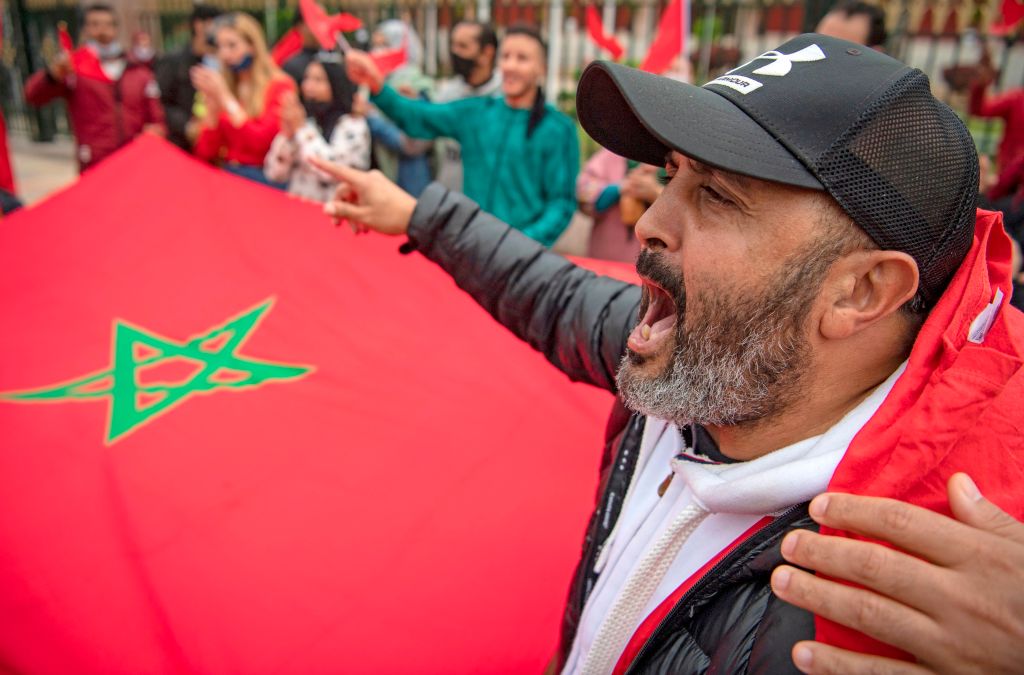Why Arab states are recognising Israel

Morocco is the latest Arab country to formalise a relationship with Israel that has been an open secret for decades. There were Moroccan and Israeli liaison offices in each other’s capitals until 2002 when Rabat decided to close them down in the midst of the second Palestinian intifada. However, contact continued even after their closure. Now, King Mohammed VI has decided to establish diplomatic relations with Israel in return for Washington’s recognition of Moroccan sovereignty over the disputed region of Western Sahara, which even the UN refuses to accept as Moroccan territory. In addition, reports suggest that the United States is negotiating the sale of at least four sophisticated large aerial drones to Morocco as a further reward for its public embrace of Israel.
The United Arab Emirates began this phase of formal reconciliation with the Jewish state. Emirati–Israeli relations had existed in multiple spheres, including security and technology, possibly for a couple of decades. Abu Dhabi agreed to go public ostensibly in exchange for Israeli Prime Minister Benjamin Netanyahu’s ‘suspension’ of his plan to annex parts of the West Bank granted to Israel by US President Donald Trump’s ‘peace plan’. This claim was immediately undermined by Netanyahu’s statement that the agreement didn’t nullify the Trump deal’s provision awarding Israel 30% of the occupied West Bank.
The real quid pro quo became apparent with the Trump administration’s approval of the sale (though it requires the agreement of Congress) of top-of-the-line F-35 aircraft to the UAE to bolster its military capacity and its prestige in the region.
Bahrain, where an authoritarian Sunni dynasty rules over a restive Shia majority, followed in the UAE’s footsteps. There were two major reasons for this move. The first was to buy insurance from both Israel and the US against its neighbour Iran, which is seen by the regime as the primary external supporter of Bahrain’s Shia majority agitating for democratic rights. In light of Washington’s increasing military disengagement from Middle East conflicts, the Gulf sheikhdoms have come to progressively perceive Israel as their ‘protector’ against Iran.
Second, given Bahrain’s dependence on Saudi Arabia—which saved the Bahraini monarchy from being toppled during the 2011 Arab Spring by sending troops to help it crush the democracy movement—Manama’s move is a trial balloon on behalf of Riyadh to gauge Arab and Muslim reactions to a future Saudi recognition of Israel.
Saudi Crown Prince Mohammed bin Salman, encouraged by the muted reactions to the Bahraini and Emirati moves, decided to meet with Netanyahu in the presence of US Secretary of State Mike Pompeo a few weeks ago, thus making public ongoing Saudi–Israeli coordination aimed at Iran, which both consider the primary threat to their security. Two factors motivated the Saudi decision. The first was to signal to Iran that Riyadh won’t be alone in a future showdown with Tehran even if the US decides not to directly participate in any confrontation with Iran. Second, MbS wanted to placate the US Congress, which has a heavy pro-Israeli presence and has been critical of him since the brutal assassination and dismemberment of journalist Jamal Khashoggi, which most people believe was carried out on his orders.
Sudan’s decision to recognise Israel was in some ways a course reversal, for it was perceived to be friendly with Iran. Kharotum’s refusal to join the Saudi–Emirati war against the Houthis in Yemen was seen as proof that it didn’t want to spoil relations with Iran. However, the Sudanese regime changed its mind in light of the American offer to take it off its list of terror-supporting states as a quid pro quo for establishing diplomatic relations with Israel. This would make it considerably easier for Sudan to trade and engage with the rest of the world. It would also lead to a toning down of the criticism of the regime in the West for its undemocratic credentials and its relative success in aborting the movement for democracy in the country.
Israel’s success in establishing diplomatic relations with four Arab states in quick succession signals that the Palestinian issue is no longer considered important by Arab regimes and that publicly selling out the Palestinians doesn’t affect their legitimacy at home. However, this series of diplomatic victories is not as great a breakthrough for Israel as many Western analysts assume. In most cases it merely formalises relations that existed without much publicity for years if not decades.
There’s a discernable pattern in the sequential recognition of Israel by Arab states over the past few months. In all cases the US played a key role in bringing Arab parties around by holding out arms sales as carrots or acceding to other demands important to them. But hostility towards Iran among many Arab regimes, especially in the Gulf, was a major driving force behind the establishment of diplomatic links and the public strengthening of security ties with Israel at a time when the US, currently in retrenchment mode, is coming to be seen by Gulf Arab regimes as an unreliable ally against Tehran. Joe Biden’s election to the US presidency is likely to augment this feeling because of his publicly stated intention of reviving the Iran nuclear deal.
It won’t be much of a surprise if Saudi Arabia establishes diplomatic relations with Israel soon after Biden’s inauguration. Given Saudi Arabia’s importance because of its oil wealth and its position as the ‘protector’ of the two holiest Islamic sites, this would be a major public relations success for Israel and would likely intensify Netanyahu’s opposition to Biden’s attempt to revive the nuclear agreement and normalise relations with Iran. A coordinated public bid by Israel and Saudi Arabia to derail Biden’s projected opening towards Iran can be expected to carry greater weight with Washington than if they acted separately.